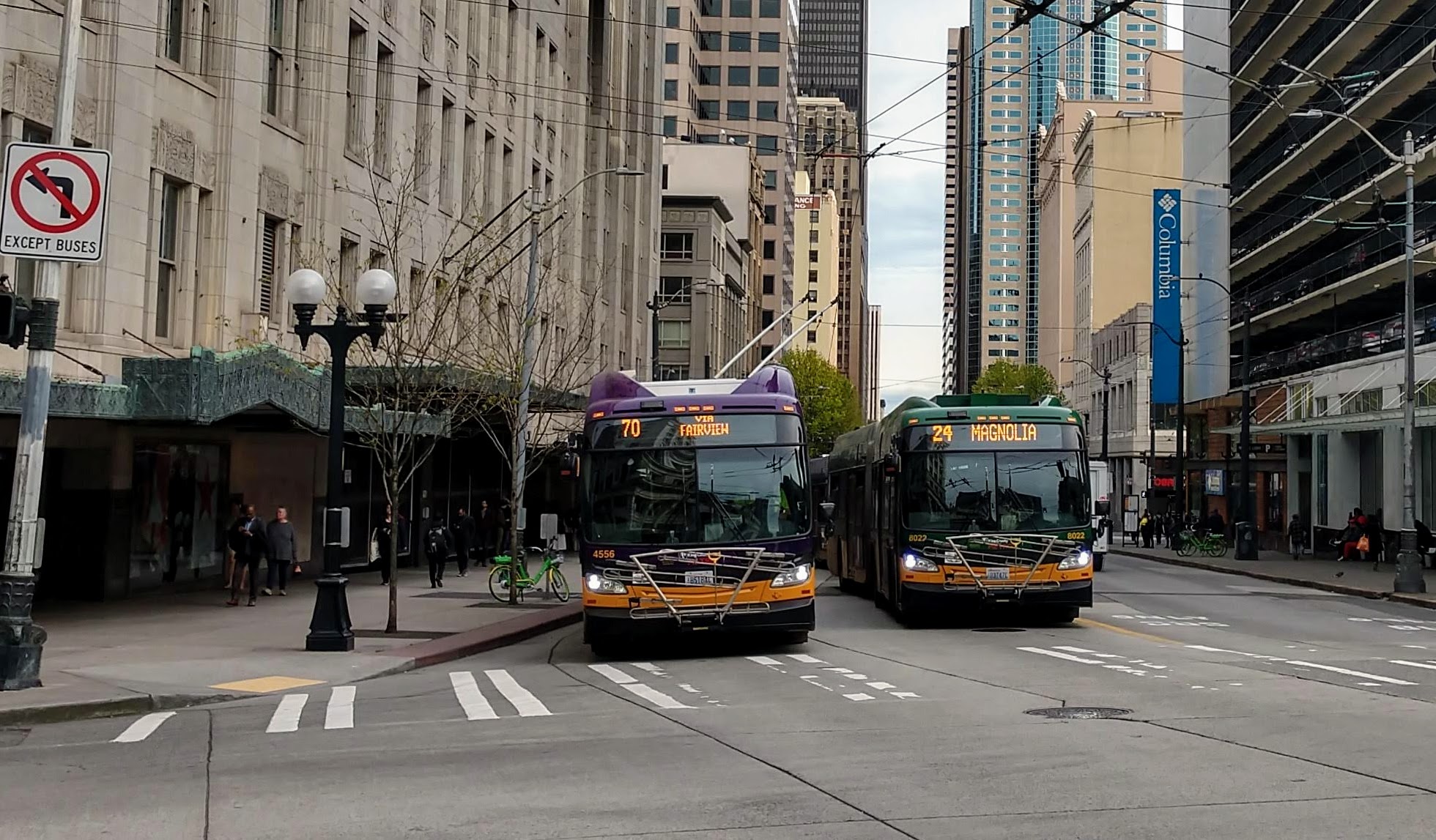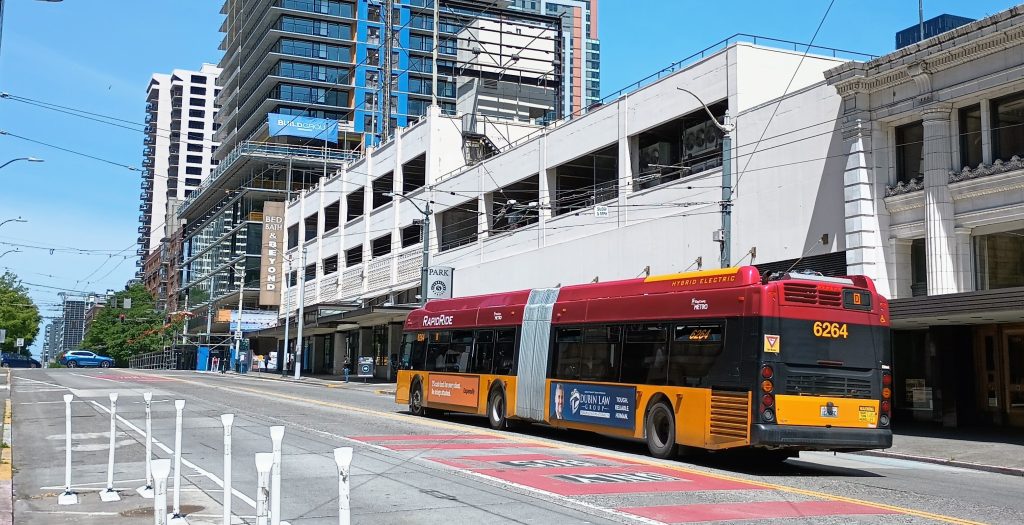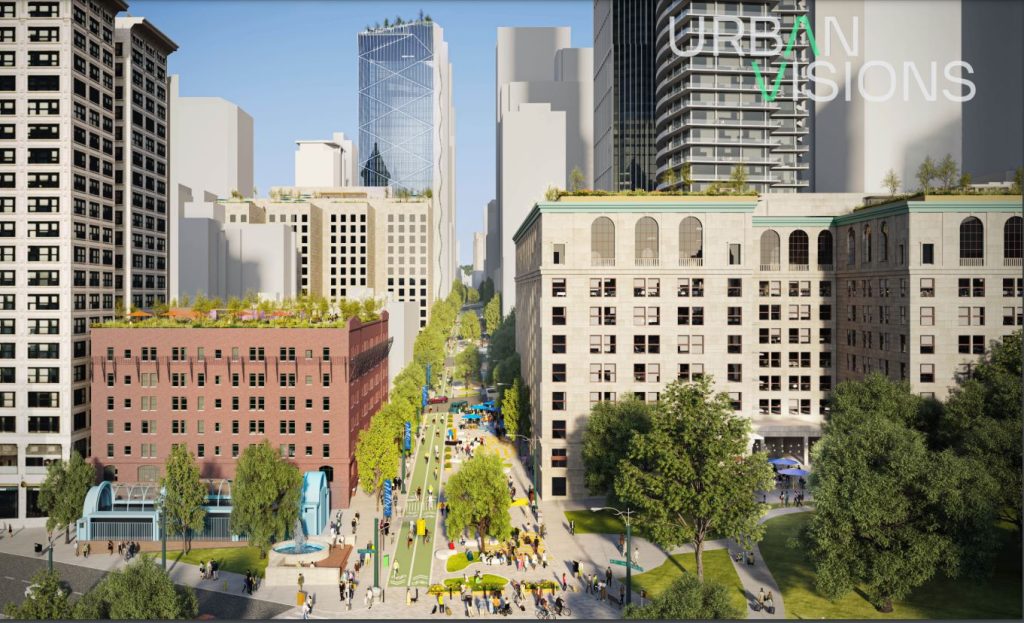World
Seattle May Punt Third Avenue Transit Mall Extension After World Cup – The Urbanist

A long-planned extension of Downtown Seattle’s Third Avenue transit mall three blocks north into Belltown may be delayed until late 2026, even as the region faces an impending need to improve transit operations in advance of the FIFA Men’s World Cup that summer. The potential delay in implementing paint and signage demarcating bus only lanes and restricting access to through traffic along Third Avenue between Stewart Street and Blanchard Street is being blamed on the need to coordinate with other projects along the Third Avenue transit spine that are set to disrupt buses. However, the vacillating is coming at the same time that Seattle City Councilmember Bob Kettle is raising questions about the merits of the project entirely.
The plan to extend the transit mall into Belltown was originally set to be implemented last year, but was moved to 2024 due to a desire to coordinate with a planned road repaving along the stretch in question and concurrent work being completed by Seattle Public Utilities (SPU) to replace an aging water main. That had been scheduled to start this summer, according to the project’s website, but Seattle Department of Transportation (SDOT) spokesperson Ethan Bergerson confirmed that the department is reconsidering its timeline again in light of other projects, including the overhaul of a highly used bus stop at Third Avenue S and S Main Street and safety improvements at Third Avenue and Yesler Way.

“Doing this construction at the same time in all three locations would pose an operational challenge for Metro and impact bus riders. We also want to make sure that construction is not happening during the 2026 FIFA World Cup,” Bergerson wrote to The Urbanist. “We are considering having the work in Belltown occur during the final construction phase, which could potentially be after the 2026 World Cup if there is any chance that it wouldn’t be completed before then. This would affect the timeline for the transit corridor extension, as it would not make sense to change the signs and markings for the transit corridor extension before closing the road to repave and replace the water main.”
“This is an ongoing conversation and we haven’t made any final decisions yet. We will update the public as more information is available,” Bergerson noted.
Many transit advocates would likely dispute the idea that it doesn’t make sense to extend the region’s busiest bus mall in advance of the World Cup and the expected 750,000 visitors it is expected to bring, especially if the repaving and water main replacement is set to be delayed. The Move All Seattle Sustainably (MASS) Coalition — of which The Urbanist is a member — has been calling for the City of Seattle to paint Third Avenue red all the way north to Denny Way since 2019, and the project remains low-hanging fruit for transit priority in the city.

But District 7 Councilmember Kettle has been voicing public concerns about extending the transit mall, suggesting that additional transit priority would somehow hinder efforts to improve public safety in the area. Early this week he stated his opposition to the idea at a weekly council discussion, calling the idea outdated.
“We cannot be, essentially, changing the facts on the ground like in terms of bus service on Third Avenue, in terms of the idea of extending it into Belltown,” Kettle told his colleagues, echoing comments that he made to the Belltown Community Council in May. “I’ve been speaking with members of the department of transportation, SDOT, and obviously this idea from 2018 is not really applicable today, and in fact it would be kind of a step backwards, in terms of like the Third Avenue Project.”
The Third Avenue Project (TAP) was a new model of community safety patrols and individual case management developed by the City in 2022, intended to grapple with entrenched issues that have persisted for decades along Third Avenue. The geographic scope for TAP didn’t include Belltown, and it’s unclear how extending transit priority would actively hinder any other public safety efforts there.
Kettle’s comments seem to reinforce an idea recently raised by Seattle Times columnist Danny Westneat that problems along Third Avenue are somehow the fault of the street’s dedicated transit priority. The Urbanist’s Doug Trumm picked apart Westneat’s arguments in an op-ed, noting the faulty logic in the claim that car traffic will make the street vibrant.

A long-term redesign of Third Avenue, long a priority of downtown business groups including the Downtown Seattle Association, remains on the horizon and is set to receive a direct funding source in the next city transportation levy, if it’s approved by voters. That project is an opportunity to make the street more vibrant while at the same time maintaining its transit-oriented focus. But a delay to implementing a quick win by extending transit priority into Belltown right now would be a clear victory for the status quo.
Ryan Packer lives in the Summit Slope neighborhood of Capitol Hill and has been writing for the The Urbanist since 2015. They report on multimodal transportation issues, #VisionZero, preservation, and local politics. They believe in using Seattle’s history to help attain the vibrant, diverse city that we all wish to inhabit. Ryan’s writing has appeared in Capitol Hill Seattle Blog, Bike Portland, and Seattle Bike Blog, where they also did a four-month stint as temporary editor.











